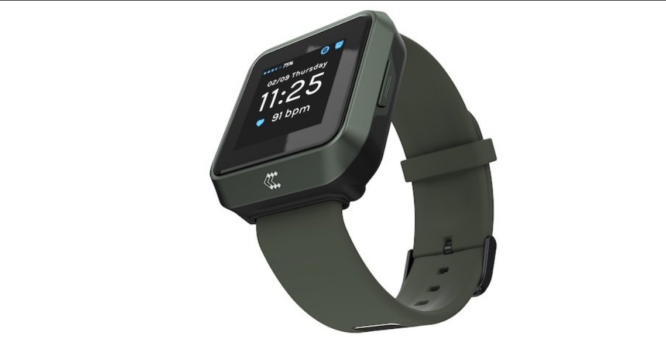About three years ago, Arvydas Paukštys, the founder of IoT company Teltonika, read an article about Kaunas University of Technology (KTU) scientists and Vilnius University researchers developing a highly accurate algorithm for detecting atrial fibrillation.
This gave him the idea to create such a device. Teltonika licensed this unique and copyrighted technology from KTU and VU, but the route was long.
Teltonika Telemedic, created during the epidemic, led the project with about 15 employees. First, implement the algorithm, set up the program, design the wristband, and certify the device. After improving TeltoHeart’s functionality, Teltonika began mass manufacturing in Lithuania.
The initial goods will move to India, Cyprus, Spain, and Peru, with some staying in Lithuania, where numerous private medical institutes have indicated interest in testing these medical wristbands.

The ingenious gizmo is technically unique worldwide.
“Around 1 billion people globally suffer from various heart rhythm disorders,” stated Teltonika Telemedic CEO Martynas Osauskas. Smart gadgets help identify such diseases early, which improves treatment.
Our medical-grade smart wristband instantly detects atrial fibrillation and other arrhythmias, such as abrupt pulse decreases or spikes. If the bracelet identifies an arrhythmia, the individual should record a six-derivative electrocardiogram so the doctor can diagnose and treat it.
This wristband’s technological capabilities make it a world-class medical gadget.”
Teltonika Telemedic’s MyHealth telemedicine ecosystem includes the TeltoHeart bracelet, a data-collecting app for mobile devices, and the TeltoCare platform for doctors to monitor patient data, making medical facilities more efficient.
“Heart rate monitoring needs to be done over a long period, but until now, the devices offered have been either very inconvenient or expensive,” said M. Osauskas. Teltonika’s long-term heart rate monitoring bracelet is efficient, useful, and pleasant.
Future telemedicine technologies will also address healthcare system issues. Remote data analysis lets doctors see more patients. Early diagnosis reduces treatment costs and hospital workload.”
Sales partners or medical institutions will sell TeltoHeart smart medical wristbands for personal use.

